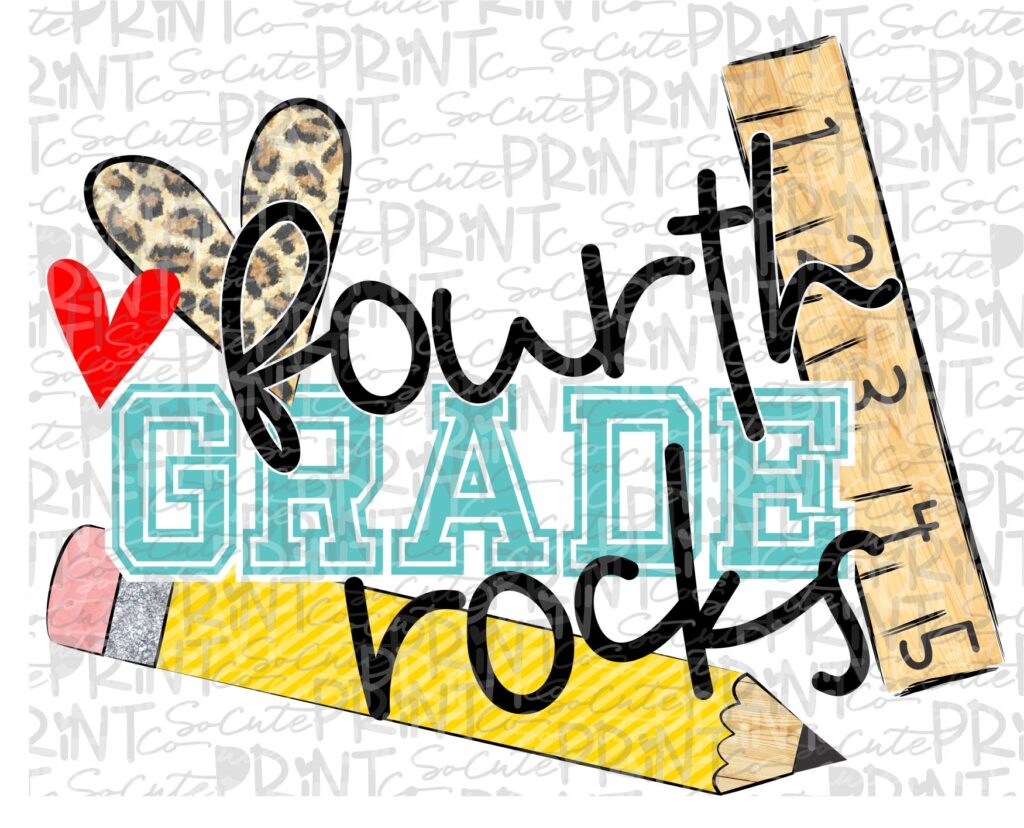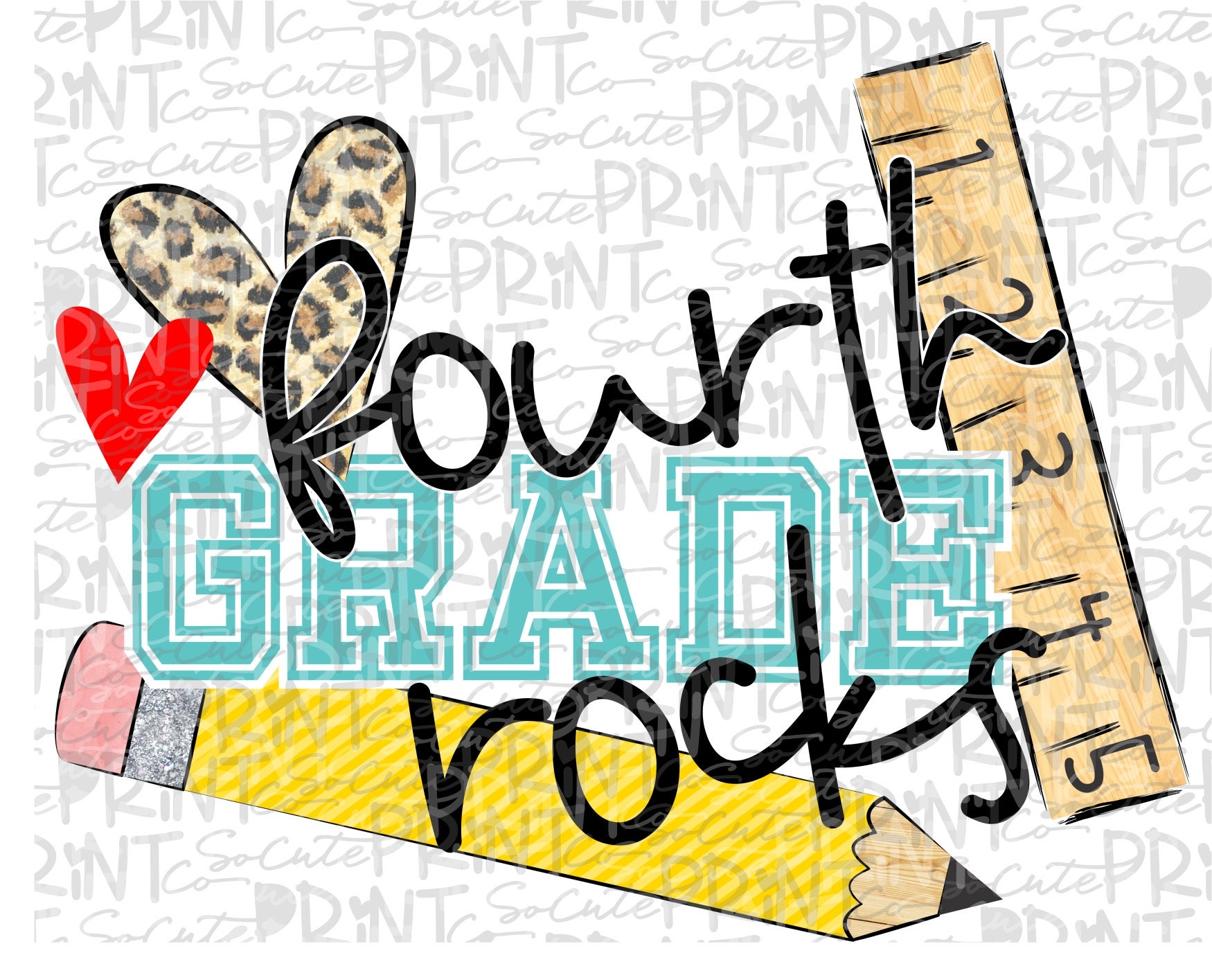
Navigating 4th Grade: A Comprehensive Guide for Parents and Educators
Fourth grade marks a significant transition in a child’s academic journey. It’s a year where foundational skills are solidified, and new, more complex concepts are introduced. For parents and educators, understanding the landscape of 4th grade is crucial to providing the necessary support for student success. This guide offers a comprehensive overview of the key areas of focus, challenges, and strategies for navigating this pivotal year.
The 4th Grade Curriculum: What to Expect
The 4th grade curriculum is designed to build upon the knowledge and skills acquired in previous years. Students are expected to demonstrate increasing independence and critical thinking abilities across various subjects. Here’s a breakdown of what you can expect in core academic areas:
Reading and Language Arts
In 4th grade, reading comprehension becomes even more crucial. Students are expected to read longer and more complex texts, identify the main idea, understand character development, and draw inferences. Writing skills also advance, with an emphasis on crafting well-organized paragraphs and essays. Grammar and vocabulary are further refined.
- Reading Comprehension: Analyzing texts, identifying themes, and making connections.
- Writing: Developing essays with clear topic sentences, supporting details, and conclusions.
- Grammar: Mastering parts of speech, sentence structure, and punctuation.
- Vocabulary: Expanding word knowledge through context clues and dictionary use.
Mathematics
4th grade math focuses on building a strong foundation in multiplication, division, fractions, and decimals. Students learn to solve multi-step word problems and apply mathematical concepts to real-world situations. Geometry and measurement are also introduced or expanded upon.
- Multiplication and Division: Mastering multiplication facts and division strategies.
- Fractions: Understanding equivalent fractions, comparing fractions, and adding/subtracting fractions with like denominators.
- Decimals: Introducing decimal notation and comparing decimals.
- Geometry: Identifying and classifying geometric shapes, calculating area and perimeter.
Science
The 4th grade science curriculum typically covers a range of topics, including life science, physical science, and earth science. Students engage in hands-on activities and experiments to explore scientific concepts.
- Life Science: Studying ecosystems, food chains, and plant/animal adaptations.
- Physical Science: Exploring properties of matter, energy, and motion.
- Earth Science: Learning about the Earth’s systems, weather patterns, and natural resources.
Social Studies
In 4th grade, social studies often focuses on local or state history and geography. Students learn about important historical figures, events, and geographic features. They also develop map skills and learn about different cultures.
- History: Studying local or state history, significant events, and historical figures.
- Geography: Learning about geographic features, map skills, and different cultures.
- Civics: Understanding the basics of government and citizenship.
Common Challenges in 4th Grade
While 4th grade is an exciting time of learning and growth, it also presents some common challenges for students. Understanding these challenges can help parents and educators provide targeted support.
Increased Academic Rigor
The academic expectations in 4th grade are significantly higher than in previous years. Students are expected to demonstrate greater independence and critical thinking skills. This can be challenging for some students who may struggle with the increased workload or complexity of the material.
Maintaining Focus and Attention
As the curriculum becomes more demanding, maintaining focus and attention can be difficult for some 4th grade students. Distractions in the classroom and at home can hinder their ability to concentrate on their work.
Organization and Time Management
4th grade students are expected to manage their time effectively and stay organized. This includes keeping track of assignments, completing homework on time, and preparing for tests. Students who struggle with organization and time management may fall behind.
Social and Emotional Development
In addition to academic challenges, 4th grade students are also navigating social and emotional development. They are learning to manage their emotions, build relationships, and resolve conflicts. Peer pressure and social dynamics can also become more complex.
Strategies for Supporting 4th Grade Students
There are many strategies that parents and educators can use to support 4th grade students and help them succeed. Here are a few key approaches:
Create a Supportive Learning Environment
A supportive learning environment is essential for 4th grade students. This includes providing a safe and encouraging space for learning, fostering a growth mindset, and celebrating successes. Parents can create a supportive learning environment at home by providing a quiet study space, setting clear expectations, and offering encouragement and praise.
Communicate Regularly with Teachers
Regular communication between parents and teachers is crucial for supporting 4th grade students. Parents should attend parent-teacher conferences, communicate with teachers via email or phone, and stay informed about their child’s progress. Teachers can provide valuable insights into a student’s strengths and weaknesses and offer suggestions for how to support them at home.
Provide Opportunities for Enrichment
Enrichment activities can help 4th grade students deepen their understanding of academic concepts and explore their interests. This includes providing opportunities for reading, writing, math, science, and the arts. Parents can take their children to museums, libraries, and other educational venues. They can also enroll them in extracurricular activities, such as sports, music, or art classes.
Foster a Love of Learning
One of the most important things that parents and educators can do for 4th grade students is to foster a love of learning. This includes making learning fun and engaging, connecting learning to real-world experiences, and encouraging students to ask questions and explore their curiosity. When students are excited about learning, they are more likely to succeed academically and develop a lifelong love of knowledge.
Address Learning Gaps Early
If a 4th grade student is struggling with a particular subject, it’s important to address the issue early. This may involve providing additional support at home, working with a tutor, or seeking help from the school’s learning support team. Addressing learning gaps early can prevent students from falling further behind and help them build a strong foundation for future success. Identifying these early is key to ensuring the student can continue to progress in 4th grade.
Encourage Reading Outside of School
Reading is fundamental to success in all academic areas. Encourage your 4th grade child to read regularly outside of school. Visit the library together, let them choose books that interest them, and make reading a fun and enjoyable activity. Discuss the books they are reading to enhance comprehension and critical thinking skills. [See also: Tips for Improving Reading Comprehension]
Practice Math Facts Regularly
Mastering math facts is essential for success in 4th grade and beyond. Practice multiplication, division, addition, and subtraction facts regularly. Use flashcards, online games, or other fun activities to make learning math facts more engaging. [See also: Fun Math Games for Kids]
Promote Organization Skills
Help your 4th grade child develop strong organizational skills. Teach them how to use a planner to keep track of assignments, organize their notebooks and folders, and keep their study space tidy. Provide them with the tools and resources they need to stay organized. A well-organized student is more likely to succeed in 4th grade.
Encourage Problem-Solving Skills
4th grade is a great time to encourage problem-solving skills. Present your child with challenges and encourage them to find solutions. This could involve anything from solving puzzles to working on science experiments. Encourage them to think critically and creatively. The ability to problem-solve will benefit them throughout their lives.
Foster Independence
4th grade is a time for increased independence. Encourage your child to take responsibility for their own learning and behavior. Let them make choices and solve problems on their own. Provide guidance and support when needed, but avoid doing things for them that they can do for themselves. Fostering independence will help them develop confidence and self-reliance. The 4th grade curriculum is meant to instill that in students.
Conclusion
4th grade is a crucial year in a child’s educational journey. By understanding the curriculum, addressing common challenges, and implementing effective strategies, parents and educators can help students thrive academically, socially, and emotionally. With the right support and encouragement, 4th grade can be a positive and rewarding experience for all. Remember to stay involved, communicate effectively, and foster a love of learning to set your child up for success in 4th grade and beyond. This year is a stepping stone to future educational success, so make the most of it!

